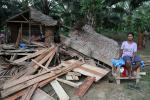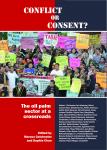Urgent appeal against the forced eviction of Sengwer communities in Kenya
23 Dec 2013
We are deeply concerned by the forced evictions of the 6,000-7,000 Sengwer indigenous people and other communities in Embobut Forest in the Cherangany Hills (Elgeyo Marakwet County, Kenya). For many years the Government has been trying to move the indigenous inhabitants of Embobut off their land by burning their homes. They have done this in the name of a fortress conservation approach which seeks to remove local people from their lands.







